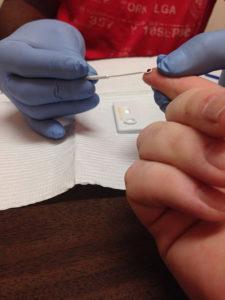One of the debates in the HIV field is whether antibodies play in role in HIV transmission. Are antibody-neutralization resistant viruses more transmittable or are there other fitness characteristics that make a virus transmit and establish infection? To investigate this, scientists from the Fred Hutchinson Cancer Research Center studied mother-to child transmission. They found no correlation between maternal neutralization-resistant viruses and infant HIV acquisition risk.
The role of neutralizing antibodies in protection against HIV is not fully understood. Studying mother-to-child transmission is a good setting to study if antibodies do play a role in transmission. Without effective medical care to HIV-infected mothers , approximately 30-45% of infants will become infected with the virus. This relatively low percentage suggests that there must be some protective immune component protecting most of these infants.
The researchers, led by Julie Overbaugh, investigated whether mothers with antibody neutralization-resistant viruses transmit HIV to their infants easier than mothers with neutralization-sensitive HIV strains.
The researchers recruited 10 transmitting and 10 nontransmitting mother-child pairs. The mothers all had high viral loads and therefore had greater chances of transmitting the virus to their infants. The transmitting and nontransmitting mothers had the same range of CD4 counts and duration of breastfeeding. The HIV-positive infants were HIV negative when they were born and their first HIV-positive tests were either at 6 or 14 weeks of age.
The researchers sequenced through 5 viruses from the mothers in the cohort and made pseudoviruses. The pseudoviruses were made to test how well the maternal viruses were able to be neutralized by maternal autologous antibodies.
There was no association between transmission risk and neutralization by autologous antibodies. Interestingly, the data showed that nontransmitting mothers had similar or more neutralization-resistant viruses (depending on the cutoff used) as compared to transmitting mothers.
This is the largest study to look at autologous antibody responses to maternal HIV strains in mothers who either transmit or not. This study reveals that antibody neutralization resistance may not play a role in transmission. Other factors other than antibody escape mutants are playing a role in HIV transmission.
Journal article: Milligan et al., 2016. Maternal Neutralization-Resistant Virus Variants Do Not Predict Infant HIV Infection Risk. mBio
Article by Thandeka Moyo












